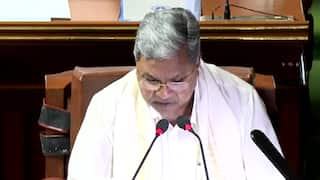Health Budget 2023 Wishlist: Thrust On Medical Education, Drug Research, AYUSH, Child & Maternal Health
Budget 2023: Experts believe that this year, the Union Budget's health sector needs more funding because people have become more aware of their health after Covid-19.

Budget 2023: Union Finance Minister Nirmala Sitharaman is set to announce India’s budget for the year 2023 on Wednesday, February 1. The health sector is one of the most important sectors, especially in the midst of an ongoing Covid-19 pandemic, and requires a significant amount of funds to achieve different goals.
Experts have called for heavy investment in medical colleges, healthcare infrastructure, and disease awareness initiatives, and expect the budget to focus on drug research, child and maternal health initiatives, traditional medical practices, infectious diseases and antimicrobial resistance, among others.
Increased thrust on medical education
This year’s budget should heavily invest in medical colleges for creating undergraduate and postgraduate seats, according to an expert.
“Budget should focus on building healthcare infrastructure across all tiers of cities but more importantly should heavily invest in medical colleges for creating undergraduate and postgraduate seats to bridge the huge gap in terms of doctor to patient ratios. It should support institutions through funding who are working on various breakthroughs in medical research,” Dr. Devlina Chakravarty, Managing Director, Artemis Hospitals, told ABP Live.
“Health budget allocation should be one of the “top three” in terms of allocation if one wants to see a credible change in this space,” she added.
Dr Chakravarty also mentioned that one should keep in mind the huge population and less than conducive current infrastructure.
Budget allocation for drug research
Research and development of new drugs are some of the core areas of the health sector that require separate allocation of funds, Dr. Sanjay Agarwal, Senior Diabetologist, Hon. Secretary, National RSSDI, told ABP Live.
He also hopes for funding in infrastructure for government hospitals, and health education for the masses. “Clearly, the pandemic has given us a hard lesson on the need to invest more in health. Infrastructure building of government hospitals to aid the poor, health education for the masses to seek early advice, ensuring health care for all, and investing in research and development of new drugs and technology are some of the core areas of the health sector that require separate allocation of funds,” Dr Agarwal said.
Better incentives for doctors, prevention programmes
Dr Agarwal expects this year’s budget to focus on better incentives for doctors and prevention programmes. “While establishing many medical colleges, we also need to ensure better incentives for doctors who choose to practise in tier 2 and 3 cities. Most importantly, prevention programs must receive adequate funds as they are the key to reducing disease burden, further preventing hospitalisation costs. Unfortunately, we are not spending enough on this. However, it is high time now to include it on a priority basis,” he explained.
“Lastly, investing in data building for our population is important for policy making. We do not have datasets for health which will help in understanding disease patterns and making guidelines and policies which help our people,” Dr Agarwal added.
More funds needed for research and development, prevention, advanced healthcare
“We need to spend more on research and development, prevention, education, and availability of advanced healthcare facilities, especially to cater to low- and middle income populations. We need to ensure minimum care supported by the government for all, ‘A Health-Security system’ by providing cards which will ensure healthcare to basic requirements. We need to ensure that healthcare professionals are being given adequate compensation for their services. Large hospitals should be made accountable for their services. The government should consider more funding to research facilities and provide grants for those opting for a research career,” Dr Agarwal said.
Budget allocation for traditional medical system
Over the past few years, more and more people have started believing in yoga, homoeopathy, naturopathy and other traditional medical practices. “Recognising the importance of the country's traditional medical system, including Yoga and Naturopathy, in the context of the Covid-19 pandemic, the government has consistently stressed the extension of the work being done by the Ayush Ministry. With this year’s Budget, there are expectations that new schemes will be announced in this regard,” Dr. Babina NM, Chief Medical Officer, Jindal Naturecure Institute Bangalore, told ABP Live.
“Prioritising traditional practices like yoga, meditation, sound healing, and other relaxation techniques is necessary,” Dr Babina added.
“In general, people now favour mindful living in all spheres, including food, medication, exercise, and general way of life. The importance of preserving one's health and well-being has been highlighted by the pandemic, and the wellness industry is in the throes of change,” Dr Babina said.
Budget allocation for childhood and maternal nutrition, antimicrobial resistance
Childhood and maternal nutrition, and antimicrobial resistance should be some of the major areas of focus in this year’s budget, according to Dr Ramanan Laxminarayan, Founder and President of the One Health Trust in Bangalore and Washington, D.C.
“I would prioritise childhood and maternal nutrition, TB and infectious disease control including antimicrobial resistance. Health priorities should be over decades and not changing from budget to budget. But health is not only improved by spending. Changing our tax and subsidy policies with respect to alcohol, tobacco, coal and sugar could make a significant impact on health without spending any more money on health,” Dr Laxminarayan told ABP Live.
‘Short sightedness on health priorities is simply inexplicable’: Expert
“Overall, India spends among the lowest in the world per capita on health for a country of its economic strength. If that does not change soon, we are putting at risk the enormous demographic dividend. The children born today will have to support an elderly population that will be two to three times the size of what we have today. So they will need to be more productive, else we risk serious trouble down the road. The short sightedness on health priorities is simply inexplicable,” Dr Laxminarayan said.
More investment needed in the field of preventive health
“While the Union budget's allotment for the healthcare industry climbed by 137% in 2021 compared to the previous year, more investment should go toward the field of preventative health and wellness. Diseases are only discovered in their latter stages because of a lack of awareness. Conditions like diabetes and cancer can be treated early if discovered early. This significantly lowers the incidence of lifestyle diseases,” Dr Babina said.
Focus on disease awareness initiatives
“In accordance with its "Ayushman Bharat Digital Mission," the government must also enhance its support for disease awareness initiatives,” Dr Babina added.
Budget allocation for mental health
Over the last few years, people have started prioritising mental health more than they did earlier. “Additionally, the funding for mental health needs to be increased to at least 10% of India's health care budget in the Union Budget of 2022-2023 in order to reflect the country's expanding mental health problems. The Indian government ought to set aside funds for comprehensive mental health care,” Dr Babina said.
How much funding was dedicated to the health sector last time? Was it enough? Here is what experts say
Experts believe that this year, the Union Budget's health sector needs more funding because people have become more aware of their health after Covid-19, and that there should be increased funding for health education programmes.
“Last year, the health sector was allocated Rs 86,200.65 with a hike of 16 percent over Rs 73,931 crore. For this year, the Union Budget health sector needs more funding as after Covid, people are more aware of their health. More funding needs to be done for Naturopathy and Ayurvedic hospitals. There should be a hike in “AYUSH” which focuses on traditional healing practices to encourage other healing practices,” Dr Babina said.
More funding needed to reduce the burden of non-communicable diseases
“Since the Covid-19 pandemic hit India, the government’s focus has prominently shifted towards the healthcare sector. Last year, the government allocated more than 86,000 crores to the Ministry of Health and Family Welfare in the Union budget. It was a hike of 16 per cent compared to the previous year. Still, the government needs to increase the fund allocation for the health sector as the burden of non-communicable diseases is impacting India rapidly. Prevention and health education programs are the urgent need of the current times. Therefore, the government must increase funding in such concerned areas of the health sector. In 2022-23, the health budget was around 2.18 per cent of India’s GDP, which can increase further,” Dr Agarwal said.
Check out below Health Tools-
Calculate Your Body Mass Index ( BMI )
Trending News
Top Headlines












































